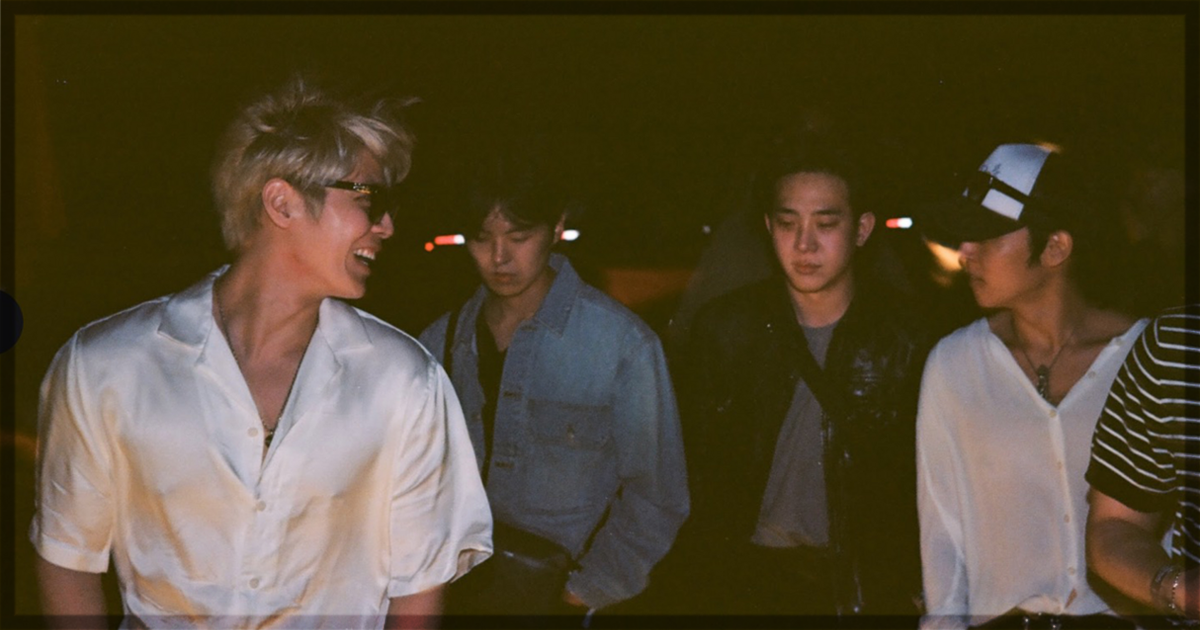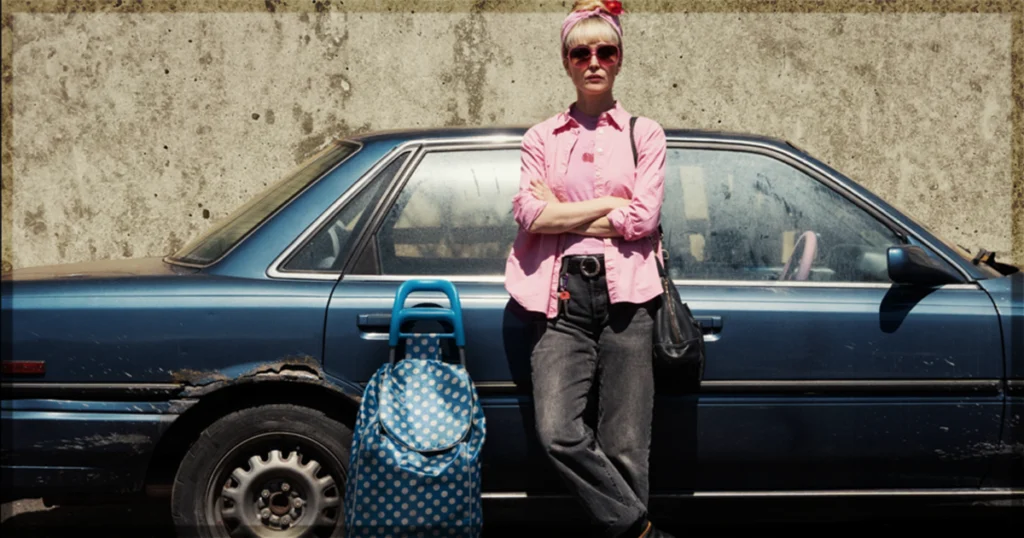At times it’s best to encounter a movie as a blank slate, even for film critics like me who have never been put off by any ounce of spoilers. If anything, there’s a different kind of pleasure that arises from experiencing something for the first time, and it’s often ambrosial and intoxicating. That’s partly true about The Rose: Come Back to Me, Eugene Yi’s documentary movie that just had its world premiere at this year’s Tribeca Film Festival. Though I’m not completely oblivious to the Korean music scene, given its global reach now and the fact that I used to be a diligent K-music listener over a decade ago, I’m not as well-versed in K-rock as other melophiles might be. In fact, this is the first time that I’ve heard the music and been aware of The Rose, the South Korean indie-rock band at the center of the movie.
For the blissfully uninitiated, the movie tracks the worthwhile yet vexingly tumultuous journey of The Rose to global stardom since their debut eight years ago. The all-male band is composed of lead vocalist and guitarist Kim Woosung (Sammy), vocalist, guitarist and keyboardist Park Dojoon (Leo), drummer Lee Hajoon (Dylan), and bassist Lee Jaehyeong (Jeff). The documentary opens with a countdown from the quartet, then it cuts to them performing “Back to Me,” a single from their second studio album Dual, to a packed Coachella audience in 2024. It is the opening weekend of the music festival. It is nearly sundown, but phone cameras are still up, and the crowd is thunderous, moving their bodies and screaming the lyrics back to the band, who are all clad in various bejeweled attire. Almost a decade ago, this critical opportunity would have only existed in their pipe dream, as Sammy recalls how the quartet was used to about 20 people showing up to their gigs, and half of whom were their friends.
The movie, over its lean 85-minute duration, then proceeds to unravel that provenance, returning to the 2010s busking scene in Hongdae, a vibrant neighborhood in the South Korean capital, where the band got their start. Leo, who acts as the group’s de facto producer, used to tour around and perform in these streets, covering whatever songs were popular at the time and living off the modest tips he would receive from his rapidly changing audience. The streets are unforgiving, but it has also made him realize that there is an audience for his own music. In fact, it is through busking that he came across Jeff, who later met Dylan while undergoing training at a K-pop studio. Together the trio formed the indie band Windfall, followed by a series of busking performances on the streets, inside malls, and at bus stations; sometimes they even performed in costumes. But they felt like they needed another vocalist and a good-looking frontman, so entered Sammy, an ex-contestant on the television talent search K-pop Star, whom Leo met at a nightclub when he was still a trainee. The rest is history, so to speak.
Talking heads, archived footage, and animation largely inform the movie’s visual paraphernalia. Yi, alongside cinematographer Richard Hama, often resorts to sit-downs with the band members, where he shoots them against a black backdrop; at the same time, he trains the camera on numerous rehearsals and backstage moments that inform the viewer of the group’s work ethnic and relationships with the people orbiting them. Just as David E. Simpson’s editing follows a linear emotional throughline, Come Back to Me’s narrative also functions in that manner, keen on untangling the quartet’s personal histories and their shared passion for music, like how Jeff got exposed to rock music by his dad, or how Dylan discovered that he wanted to play the drums in middle school to the extent of spending several hours in their church just to practice and play the instrument.
Like many K-idol hopefuls, The Rose went through the K-pop training industry, described in the film as a grueling sport on its own and known for its 10-10 system, where talents are expected to train their vocal, dance, and language skills from ten in the morning through ten in the evening. But this rigorous system—years of training and image-molding—rarely promises anything. In fact, Jeff reveals that only 0.1 percent of the talent pool gets to debut, and it becomes a lot steeper when one considers how successful these debuts are. By this design, The Rose, whose namesake reflects the duality of beauty and pain, is bound to wrestle with a surfeit of hurdles.
In the band’s gestation period, they had to spend a year in a rehearsal studio, covering popular songs and performing in small gigs, until they got a label. They lived together in a three-bedroom unit in a low-rise building, where they split their time between practice and playing video games. The release of their debut single “Sorry” in 2017 catapulted them to the mainstream music scene and to stardom of impossible scale, but behind it, the band’s fractured relationship with their talent agency and with each other only got heightened. There’s the plotting of Sammy’s solo career, his history of substance abuse, the depression that he and Jeff went through, the lawsuit against their original record label, the tours halted by the pandemic, and members enlisting for mandatory military service, just to name a few.
Following these growing pains, it’s only fitting that the band explored the healing power of music in their debut studio album, Heal. This notion of music as a form of therapy recurs throughout the movie. Sammy, for instance, turned to music to nurse the pain of having to give up his dream of becoming a professional football player after dislocating his shoulder at a young age. Music also became his respite after the K-idol system exhausted him, just as it did for the rest of the band. And it is through this aspect that the movie finds its emotional heft, though its rendering still hews to a visual lexicon that’s typical of music documentaries, not to mention the compulsion to appeal to Western audiences.
Towards its endnote, The Rose: Come Back to Me parallels its opening, with the titular band at the peak of their success: topping Billboard’s Emerging Artists chart, selling out their concert at the Los Angeles Forum, and rocking Coachella. The final montage is of course sweeping and sentimental. It shows us not just the radical power of music but also of kinship and community in a cutthroat artistic terrain. And as much as the movie is a testament to the early beginnings of The Rose, it is also a sober refusal of the K-rock industry’s incredibly unsparing nature. “Music is human,” we are told—and so are these global rock stars.
The Rose: Come Back to me recently premiered at the Tribeca Film Festival.
Learn more about the film at the Tribeca site for the title.


